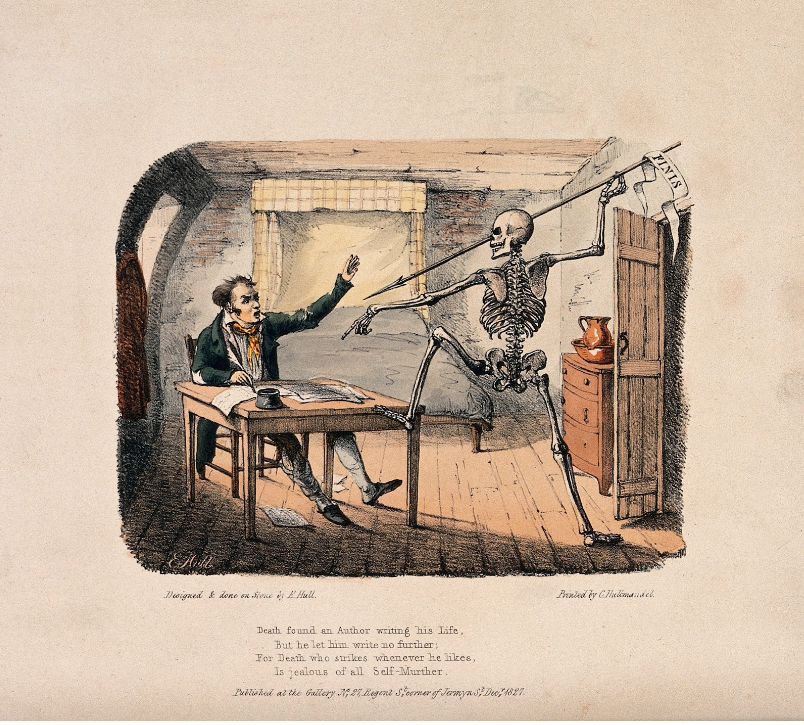How J.K. Rowling Fits into the “Death of the Author” Theory
January 12, 2023
On September 1, 1998 British novelist J.K. Rowling released Harry Potter and the Sorcerer’s Stone, the first of seven fantasy middle grade (MG) novels, to an American audience. The release welcomed commercial success and enthusiasm from all corners of the literature world – critics and young readers alike. Rowling’s world of mythical beasts and wizarding schools offered an escape to those who picked up the book. The story of Harry teetered on the edge of comforting familiarity, through his struggles as a young adult dealing with change and loss, and enchanting novelty. The result for Rowling was a cult following, a cemented reputation, and a reported billion dollars.
When crafting the novels’ characters and cosmos, Rowling considered the implications of such power in the hands of children and evildoers. In the second installment of the series, Harry Potter and The Chamber of Secrets, Rowling explores Harry’s identity and integrity through dialogue with Dumbledore, the headmaster of Hogwarts. Responding to Harry’s concerns over his virtue and near sorting into the House of Slytherin, Dumbledore explains, “It is our choices… that show what we truly are, far more than our abilities.” In times of uncertainty and change, it is helpful, if not necessary, to ground oneself in what can be controlled: one’s moral compass. Influence and authority can inspire hate with one statement, decision, or – in Rowling’s case – tweet.
On June 6, 2020, Rowling responded to an article’s use of the term “people who menstruate,” when discussing menstrual hygiene during the Pandemic: “I’m sure there used to be a word for those people. Someone help me out. Wumben? Wimpund? Woomud?” Although cushioning her comments with attempts at humor, Rowling’s critique reflects the ignorant and narrow-minded thoughts of many. All too often, simply acts of inclusion – such as broadening the terms attached to gender-identity – are perceived as radical and destructive. In reality, these advancements simply make people more comfortable.
Rowling’s remarks immediately angered fans. Many expressed frustration and disappointment in an author who shaped much of their childhood. Some users even announced the end of their support for Rowling, solemnly swearing off future purchases of her merchandise. Others swarmed to defend the author, who later published an in-depth article in the “In My Own Words” section of her website.
Of course, the bubble of twitter seldom accounts for the true reactions of most. Twitter users are often quick to jump to extreme stances on either side. In truth, many find themselves at a crossroads between the nostalgia of their childhood and the demands for change, inclusivity, and awareness. Some have succeeded in partitioning their consumption of Harry Potter and their disputes with Rowling. Others find this impossible, if not irresponsible. Such conversations speak to the French critic Roland Barthes’ theory on “The Death of the Author” (La mort de l’auteur).
Written in 1967, “The Death of the Author” is an essay on the intent of creators and the experience of their creations. The essay became a cornerstone of poststructuralism, a philosophical and literary movement related to the critical analysis of texts. Barthes writes that the concept of “the Author” is “a modern figure.. a product of our society insofar as, emerging from the Middle Ages with English empiricism, French rationalism, and the personal faith of the Reformation, it discovered the prestige of the individual, of, as it is more nobly put, the ‘human person.’” Barthes concludes that the attachment of individualism and humanity to an author “tyrannically center[s]” the text on “the author, his person, his life, his tastes, [and] his passions.” Barthes explains, “It is language which speaks, not the author; to write is… to reach that point where only language acts, ‘performs,’ and not ‘me.’”
To Barthes, writing is an immediate performance that not only exists irrespectively of the author, but ends when we end our consumption of the material. Only when we divide a text from its writer, he notes, can the true meaning reveal itself. In practice, many struggle to separate the creation from its creator. For several Harry Potter fans, the magic of Hogwarts is tainted by Rowling’s comments. Quinn O’Donovan, a sophomore, explained that although she has “started to separate the series from the author,” she “[engages] in a lot of fan work and fanfiction that isn’t attached to [Rowling].” If Quinn does sport Harry Potter merchandise, she doesn’t “purchase official merchandise, because [she doesn’t] want to support [Rowling].” As a book lover, Quinn remembers, “Harry Potter was the first big series I read, and it was so fun.” However, she continued, “Finding out Rowling’s views really hurt.”
Junior Vivian Hattersley also spoke about her attachment to the series, recalling reading the book with her sister. To Vivian, “Harry Potter is a special case when it comes to separating the author from the work because it is a part of so many people’s childhood.” Vivian had “never associated the series with J.K. Rowling when [she] was younger, and probably wouldn’t have understood the magnitude of the criticism she is receiving today, so the magic of Harry Potter seems like something untouchable to today’s culture.” Because of Vivian’s childhood connection to the series, she is able to distill the magic of Harry Potter from Rowling’s political views.
Both Vivian and Quinn indicated the cultural significance and reach of Harry Potter. Few middle grade and young adult readers have not heard of the series. The scope of the franchise’s influence is incalculable, given the thousands of fan-made stories that spawned following Rowling’s original release. Equally incalculable is Rowling’s personal authority gained from the novels. Rowling has amassed millions of dollars from her intellectual property and remains an idol for many. This level of power demands consideration. Further, Rowling is intricately tied to her novels, playing important roles in all future developments, including the films.
While some can effectively detach the image and actions of Rowling from her work, as Barthes advises in his Death of the Author theory, others find it challenging or impossible. Most agree that Rowling’s abilities are special, but that her choices must be taken seriously.







